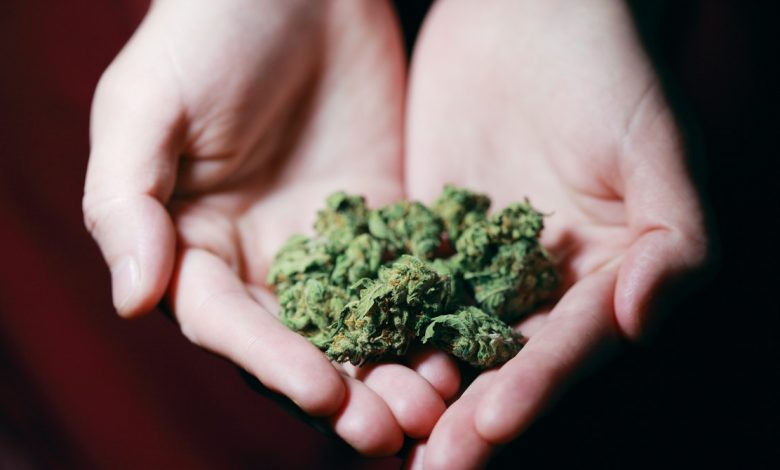How Long Does Weed Stay In Your System?

What is Weed?
Weed, also known as Marijuana is the dried leaves and flowers of the Cannabis sativa or Cannabis indica plant. Stronger forms of the drug include high potency strains – known as sinsemilla (sin-seh-me-yah), hashish (hash for short), and extracts.
Of the more than 500 chemicals in weed, delta-9-tetrahydrocannabinol, known as THC, is responsible for many of the drug’s psychotropic (mind-altering) effects. It’s this chemical that distorts how the mind perceives the world. In other words, it’s what makes a person high.
The amount of THC in weed has increased over the past few decades. In the early 1990s, the average THC content in weed was less than 4 percent. It is now about 15 percent and much higher in some products such as oils and other extracts. Scientists do not yet know what this increase in potency means for a person’s health. Some people adjust how they consume weed (by smoking or eating less) to compensate for the greater potency. There have been reports of people seeking help in emergency rooms with symptoms, including nervousness, shaking, and psychosis (having false thoughts or seeing or hearing things that aren’t there), after consuming high concentrations of THC.
Smoking extracts and resins from the weed plant with high levels of THC is on the rise. There are several forms of these extracts. These resins have 3 to 5 times more THC than the plant itself. Smoking or vaping it (also called dabbing) can deliver dangerous amounts of THC and has led some people to seek treatment in the emergency room. There have also been reports of people injured in fires and explosions caused by attempts to extract hash oil from weed leaves using butane (lighter fluid).
One study among postal workers found that employees who tested positive for weed on a pre-employment urine drug test had 55% more industrial accidents, 85% more injuries, and 75% greater absenteeism compared with those who tested negative for marijuana use.
Most states in the U.S. including Oregon, Washington, California, Nevada, Maine, Massachusetts, and Alaska—have passed laws legalizing or decriminalizing marijuana for recreational use. However, these laws generally do not protect employees from being fired due to their off-duty marijuana use.
How long does Weed stay in your system?
There are several factors that come into play when estimating how long Weed will stay in your system because every patient has physiology unique to them. Here are some major factors you should consider when trying to understand how long Weed will stay in your body:
• Age: Typically, the younger you are, the more efficient your body functions are. The more efficient your body functions, the faster Weed will be removed from your system.
• Body height/weight/fat: At least 80 different metabolites are formed from THC and may have their own effects on the body’s endocannabinoid system. These metabolites are stored in body fat. People with more body fat will retain THC for longer.
• Genetics: Genes predispose people to different metabolic functions, which is a key factor in how your body processes drugs like Weed. For this reason, your genetic makeup comes into play when estimating how long Weed will remain in your system.
• Kidney and liver functions: The liver and kidneys eliminate everything you ingest, and Weed is no exception. If your liver or kidneys are damaged, it will most likely take longer for your body to remove the Weed from your system.
• Metabolism: Your metabolism determines how quickly you process foods, liquids, and drugs such as Weed. If your metabolism is slow, it will take longer for your body to process and eliminate Weed from its system than someone with a fast metabolism.
• Usage frequency: The longer you have been taking Weed, the longer it will remain in your system. For example, it will take longer for someone who has taken weed for several years to remove weed from the body than someone who has only been taking weed for a few months.
Studies have shown that more than 65% of weed is excreted in the feces and approximately 20% is excreted in the urine. Most of the cannabis (80-90%) is excreted within 5 days as hydroxylated and carboxylated metabolites.
How long is weed detectable via drug testing?
Drug tests measure weed and weed by-products, or metabolites. These metabolites remain in your system long after weed’s effects have worn off.
Urine testing: According to Mayo Clinic Proceedings, weed is detectable in urine for the following amounts of time after last use:
- Occasional users (up to three times a week): 3 days
- Moderate users (four times a week): 5 to 7 days
- Chronic users (daily): 10 to 15 days
- Chronic heavy users (multiple times a day): more than 30 days
Blood testing: According to an article in Therapeutic Drug Monitoring, weed is typically detectable in the blood for 1 to 2 days. However, in some cases, it’s been detected after 25 days. Chronic heavy use increases the length of time that it can be detected.
Saliva Testing: According to a 2014 review on cannabinoids in oral fluid, weed is detectable in saliva for the following amounts of time after last use:
- Occasional users: 1 to 3 days
- Chronic users: 1 to 29 days
Weed can enter the saliva through smoking and exposure to smoke. However, its metabolites are only present in saliva when weed has been smoked or ingested.
Hair testing: Hair follicle tests assess drug use for up to 90 days. After use, weed reaches the hair follicles via small blood vessels. Trace amounts may remain in the hair. Since hair grows approximately 0.5 inches per month, a 1.5-inch hair segment taken close to the scalp can provide a window of weed use for the past three months.





